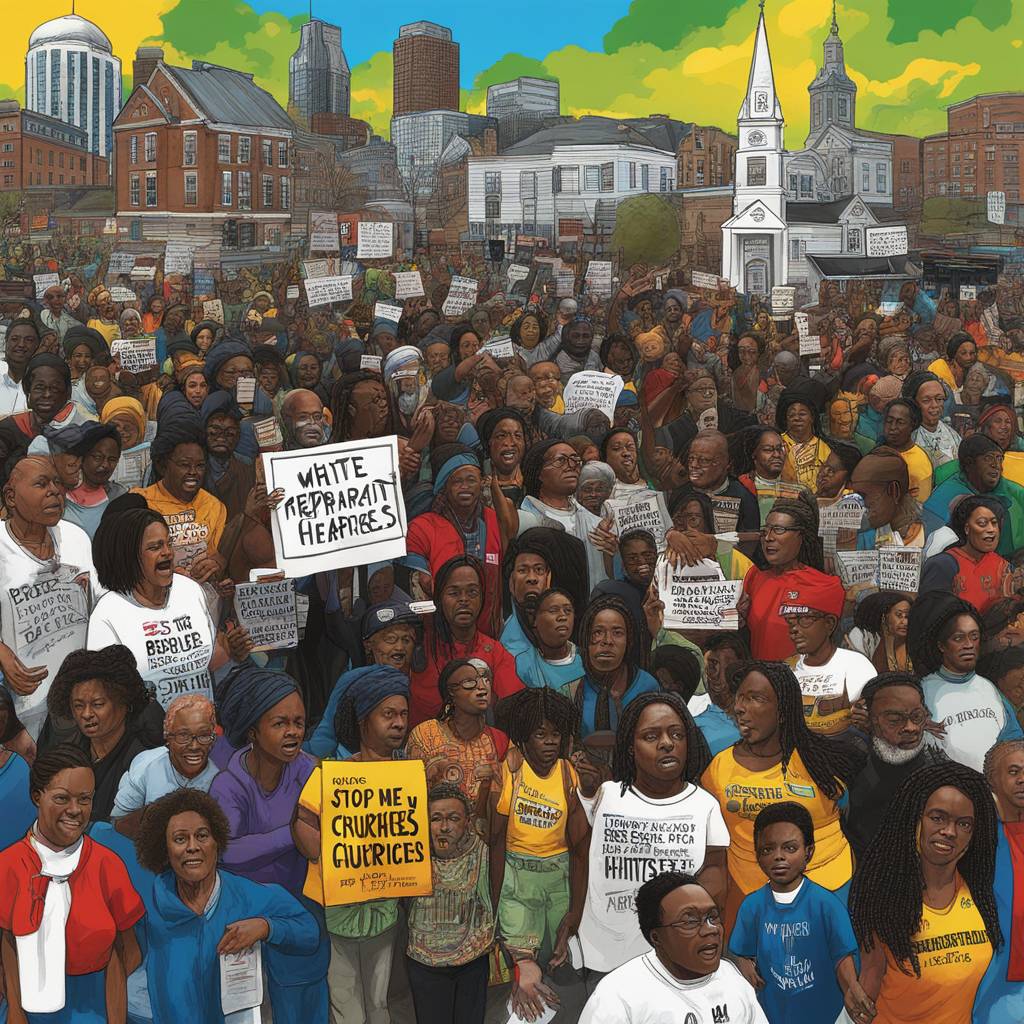The Boston Task Force on Reparations is demanding that White churches pay the Black community reparations for racial inequities stemming from the trans-Atlantic slave trade. The commission, established through a 2022 Boston City Council ordinance, is calling for a $15 billion payout to address the city’s history of slavery. Reverend Kevin Peterson, a minister leading the charge for reparations in Boston, is urging churches with ties to the slave trade to publicly commit to providing financial support to the Black community in the form of cash payments, affordable housing, and the establishment of new financial institutions.
Sixteen religious leaders have signed a letter sent to various churches in the Boston area, including Arlington Street Church, Trinity Church, Old South Church, and King’s Chapel. These churches, established in the 17th and 18th centuries, are being asked to acknowledge their history of slavery and actively participate in reparations efforts. During a press conference, Reverend John E. Gibbons of Arlington Street Church stressed the need for urgency in taking action on reparations, urging churches to move beyond discussions and research into tangible support for the Black community. Meanwhile, Reverend Joy Fallon of King’s Chapel shared that the church is working on creating a memorial for enslaved individuals and establishing a fund for social justice and reconciliation.
The commission is pushing for a total of $15 billion to be allocated in various forms of payments to address racial disparities in Boston. This amount exceeds the city’s annual budget, indicating the scale of the reparations being demanded. Reverend Peterson proposed distributing $5 billion in cash payments to Boston’s Black residents, another $5 billion to invest in new financial institutions, and the remaining $5 billion to address education and anti-crime measures targeted at racial disparities. The call for monetary compensation comes amid growing support for reparations among the Black community, with demands for acknowledgment of the harms caused by slavery and institutional oppression.
In a show of solidarity and urgency, social justice advocates like Danielle Williams are amplifying the voices of descendants of enslaved individuals who are demanding reparations. Williams, highlighting her own family’s history of slavery, emphasized that it is time for reparations to be paid to Black communities who have suffered for centuries. Drawing on religious symbolism, Williams invoked the tradition of Jesus washing his disciples’ feet, urging White churches and institutions to now extend a hand to the Black community. The call for reparations is resonating strongly in Boston, with activists and community leaders working to create meaningful change and address the lasting impact of slavery and racial injustices.
As the momentum for reparations continues to grow in Boston, with calls for significant financial commitments from churches and institutions with ties to slavery, the debate over how best to address historical racial injustices is intensifying. The urgency for action and tangible reparations is palpable, with advocates like Reverend Peterson leading the charge for full monetary compensation for the harms caused by slavery and systemic racism. The commission’s proposal for a $15 billion payout is not just a monetary ask but a demand for acknowledgment, restitution, and tangible measures to address the deep-rooted inequities that have plagued the Black community for generations. The push for reparations in Boston is part of a broader movement for racial justice and equity, calling on all sectors of society to actively participate in righting the wrongs of the past and creating a more equitable future for all.













